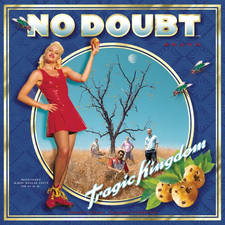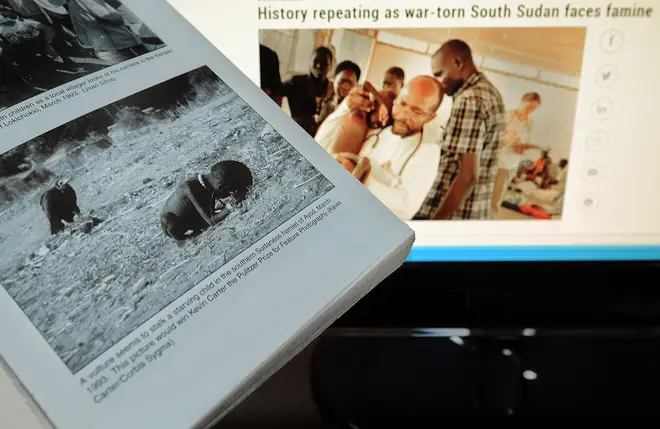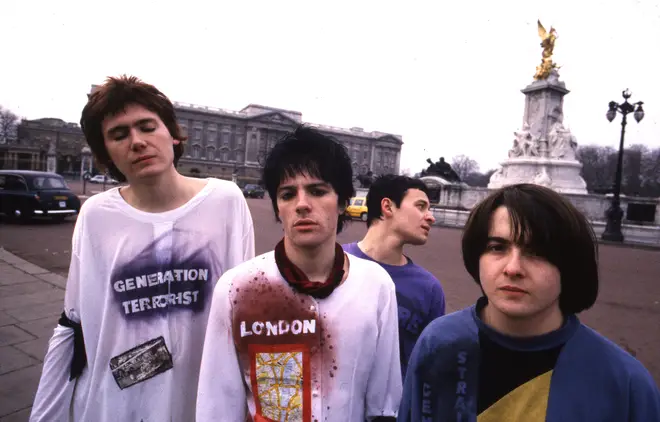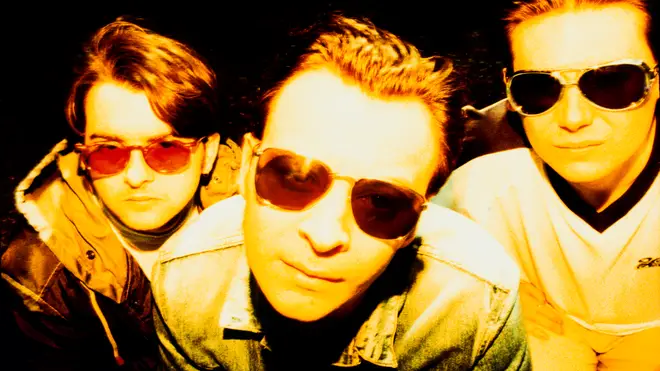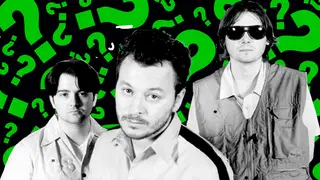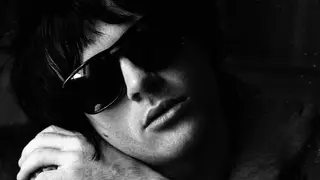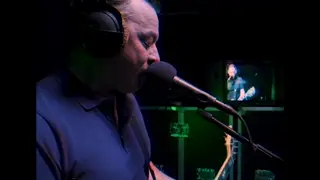Everything Must Go by Manic Street Preachers - the stories behind the songs
20 May 2024, 14:23
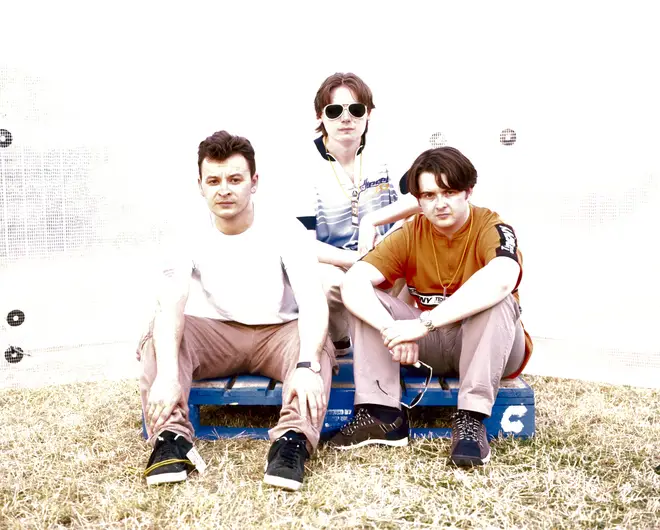
Everything Must Go is the sound of Manic Street Preachers beginning a new phase of their career.
Listen to this article
Released on 20 May 1996, Everything Must Go marked the first new material recorded since Richey Edwards went missing the previous year. The band's guitarist was last seen on 1 February 1995, as he and his bandmates - James Dean Bradfield (vocals and guitar), Nicky Wire (bass) and Sean Moore (drums) - were beginning to work on the follow-up to the harrowing, but critically acclaimed album The Holy Bible.
But Everything Must Go was not an album that mourned for their lost member - the record includes many contributions from Edwards, mainly lyrical. Nicky Wire said that "The album isn't a goodbye to him. We could never say goodbye." He told The Guardian the week the album came out: "He was my best friend. We talk about him all the time between ourselves. It's easier to live with now because we're getting busy again, but you still wake up every morning and think about it."

While Richey's shadow looms over the record, it still manages to remain an uplifting experience - despite the occasionally dark subject matter. Like all the best Manics material, the songs on Everything Must Go have multiple layers of meaning, from the personal to the political.
-
Elvis Impersonator: Blackpool Pier
The opening track of the album features lyrics by Nicky Wire, which were added to a first draft by Richey Edwards. "There weren't many lyrics anyway," Wire told Vox in July 1996. "Then I added a verse. I never spoke to Richey about what the original idea was. I suppose it's about kids wearing American basketball tops and stuff."
The lyric ponders the incongruity of seeing the image of the Stateside icon Elvis Presley in the traditionally British atmosphere of a seaside town: "American trilogy in Lancashire pottery".

Manic Street Preachers - Elvis Impersonator: Blackpool Pier (Audio)
An American Trilogy is one of the most bombastic Elvis performances, which is basically a medley of three songs: The Battle Hymn Of The Republic, All My Trials and Dixie, which is sampled at the end of the Manics song.
-
A Design For Life
The lead single from Everything Must Go, which features a line inspired by an engraving that appears above the door of Pillgwenlly Library in Newport, which inspired Nicky Wire to write a poem: "A lot of people think that A Design For Life is quite negative," he explained in a press release in February 1996, "but it's almost heroic, in the sense that whatever is thrown at the working classes by the upper classes, we will always come through."

Manic Street Preachers - A Design For Life
Wire later elaborated on the themes in the lyric to The Face. "I don't think there's anything wrong with getting drunk. That line's the opposite to Girls And Boys, pompous middle-class people taking on working-class culture and mocking it."
While Parklife seemed to be a satirical parody from Damon Albarn, Wire claimed he didn't look down on the working class kids in his town, even if they would occasionally mock him. "If they've been working in a factory all week then they've got every right to get smashed out of their brains and take the piss out of my haircut."
How A Design For Life gave Manic Street Preachers a new start
-
Kevin Carter
A Richey Edwards lyric, which concerns the tragic story of South African photographer Kevin Carter who took a picture of a vulture lurking by the body of a starving child in Sudan, during the horrific famine of 1993. The image gained acclaimed around the world and won Carter a Pulitzer Prize, but in July 1994 he took his own life, leaving a note that in part read: "I am haunted by the vivid memories of killings and corpses and anger and pain ... of starving or wounded children, of trigger-happy madmen, often police, of killer executioners."
Kevin Carter's photo of a starving child and a vulture during the 1993 famine in South Sudan, alongside a similar news headline in 2014. Picture: TONY KARUMBA/AFP via Getty Images Sean Moore recalled to Vox magazine that the identity of a troubled photographer in the thick of a traumatic situation became appealing to Edwards, claiming: "On the last UK tour, Richey started wearing cameras round his neck like Dennis Hopper in Apocalypse Now. Even down to the exact make of camera. He was obsessed with that film."

Manic Street Preachers - Kevin Carter
-
Enola/Alone
Not only did Manic Street Preachers lose one of their members in the year before Everything Must Go was released, but they also lost one of their longtime champions in the music industry. Phillip Hall, who died in December 1993, had co-managed the band since their earliest days and the memory of their friend and supporter prompted Nicky Wire to write one of the most moving songs on the album. Wire was looking at his wedding photos from September 1993 and realised that two of the people either side of him in one of the pictures were no longer around.

Manic Street Preachers - Enola / Alone (Audio)
The line "All I want to do is live no matter how miserable it is" refers to this moment. He told journalist Jon Savage: "The last three years have brought home to me how precious life is, even if it is miserable. I'd rather be alive than anything else".
-
Everything Must Go
While the album was a fresh start for the group in many ways, the inclusion of Richey's lyrics and the fact that the band were still trading under the Manic Street Preachers name kept some kind of continuity. “We're quite proud of our name," Wire told Ray Gun magazine in September 1996. "And we're quite proud of our history. Even before Richey joined the band, we were Manic Street Preachers."

Manic Street Preachers - Everything Must Go
Bradfield added that the song "does stand for getting rid of some of the baggage and learning that we have to break our own rules sometimes. This time we realised that we couldn't always be so intense about the artwork and make every album like an encyclopaedia," he explained to Select magazine in July 1996.
-
Small Black Flowers That Grow In The Sky
"Richey phoned me up one night, around Christmas '94," Nicky Wire told Vox in July 1996. "He said, 'I've just seen this brilliant programme'. It was about animals going mad in their cages. They end up shitting all over the walls and eating their sh*t. Just because they're so bored. These gorillas ended up just smearing themselves in sh*t.

Manic Street Preachers - Small Black Flowers That Grow in the Sky (Audio)
"Obviously, people will say that Richey was gonna use this image to represent his mental 'cage', but I dunno. Maybe he just wrote it about that programme."
Manic Street Preachers in London, January 1991: icky Wire, Richey Edwards, James Dean Bradfield and Sean Moore. Picture: Martyn Goodacre/Getty Images -
The Girl Who Wanted To Be God
Tragic poet Sylvia Plath took her own life in 1963, aged just 30 years old. She became a favourite writer for man musicians and lyricists, including Richey Edwards. In one of her "Letters Home", written when she was seventeen, Plath rails against routine and the expectations of being female, adding that "I think I would like to call myself 'The girl who wanted to be God'."

Manic Street Preachers - The Girl Who Wanted to Be God (Audio)
As Wire later noted, "We were all attracted to the glamour of suicides and alcohol and beauty, that Rumblefish thing of self-destruction. It's just Richey took it a lot further. Richey took things a lot further than us."
-
Sean Moore, James Dean Bradfield and Nicky Wire backstage at Parkpop Festival in The Hague, Netherlands on 21 August 1994. Richey Edwards was then in hospital with nervous exhaustion, prompting rumours that he was about to leave the band. Picture: Niels van Iperen/Getty Images Removables
Another lyric by Richey Edwards, Removables was the oldest song on the album, written in 1993 before the band recorded The Holy Bible. It wasn't until the Everything Must Go sessions that the trio could find music that worked with the lyrics, which are a painful piece of self-examination by the musician: "Aimless rut of my own perception / Numbly waiting for voices to tell me."

Manic Street Preachers - Removables (Audio)
-
Australia
Written by Nicky Wire about the pressures of the last Manics tour with Richey in the band. "At the time in Britain, the media, with Richey, was high profile," he told RIP magazine in November 1996. "Having real scummy tabloid journalists outside your door is incredibly unpleasant. I just wanted a symbol of escape."

Manic Street Preachers - Australia
-
Interiors (Song For Willem de Kooning)
De Kooning was a Dutch-born expressionist artist whose life and work was the subject of a BBC Omnibus documentary in February 1995. The film claimed that the artist's battle with Alzheimer's disease was alleviated by painting, but his later works would prove controversial.
Willem De Kooning in his New York studio circa 1982. Picture: Luiz Alberto/IMAGES/Getty Images He died a year after the release of this song on Everything Must Go, with Wire also noting that they'd written a song about an illness on every album they'd released so far: "It's not a very good tradition to follow, really."

Manic Street Preachers - Interiors (Song for Willem de Kooning) [Audio]
-
Further Away
Despite claiming in their early years that the Manic Street Preachers would never write a love song, this track is inspired by Nicky Wire's wife Rachel. "It's definitely about Nicky being away from the person he loves," Bradfield told Q in 1996. "When I saw it, there was a big, Oooooah, we can't put that on the album."

Manic Street Preachers - Further Away (Audio)
However, Wire added that the song wasn't that straightforward: "It's half a love song and half me thinking I'm finally growing apart from these people in the band," says Wire. "It's about, For the first time in my life I don't want to be with you two. Not, I hate you, but, It's not like it used to be."
-
No Surface All Feeling
This was the last song to be rehearsed by the four-piece Manic Street Preachers in January 1995, just before Richey went missing. It's one of only two recorded songs that feature Edwards on guitar (the other being La Tristesse Durera (Scream to a Sigh))

Manic Street Preachers - No Surface All Feeling (Audio)
As Bradfield told Vox in July 1996, the original recording was used on the finished album: "We were putting the album together, and when we came to No Surface All Feeling, we decided to use the demo. Only the vocals and the end bit were redone."
Thanks to the essential Manic Street Preachers resource, www.foreverdelayed.org.uk
